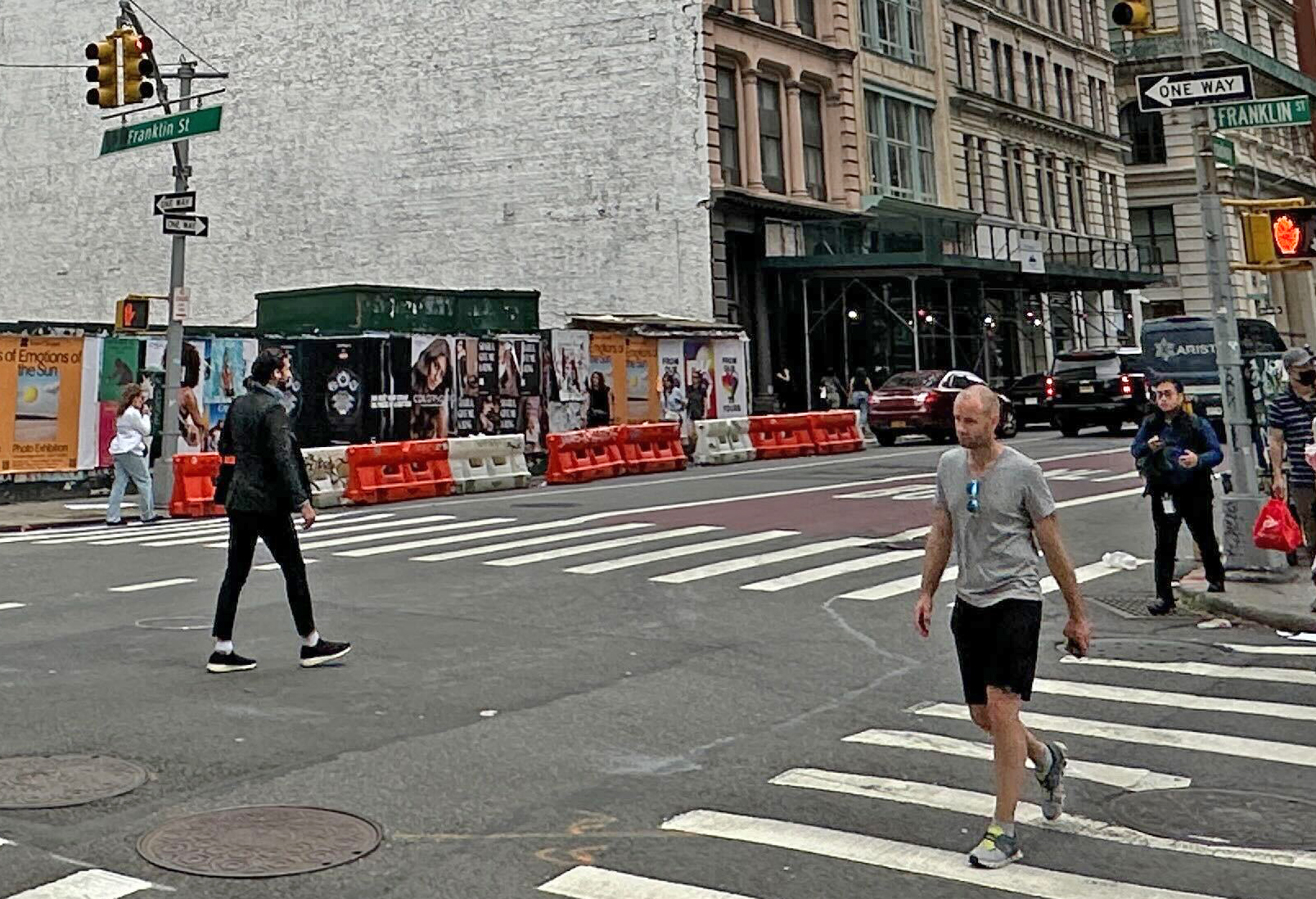The Council on Thursday passed a bill to legalize walking into the street outside of crosswalks, sometimes known as "jaywalking," two weeks after holding off on the legislation due to advocates raising concerns that it put too much blame on pedestrians.
The lawmaker behind the proposal said that the bill still addresses the racist policing of ticketing pedestrians in the street, which overwhelmingly goes toward New Yorkers of color — despite everyone in the city doing it.
"Jaywalking happens everywhere in the neighborhoods across New York City," sponsor Mercedes Narcisse (D-Brooklyn) said at a press conference at City Hall on Thursday, referring to Streetsblog's extensive coverage. "But enforcement has disproportionately impacted certain communities, with 96.5 percent of jaywalking tickets this year issued to Black and Hispanic New Yorkers. This bill seeks to address that imbalance."
Narcisse said cops can still stop people walking outside of crosswalks, but it can't be for jaywalking, adding that officers have told her they'd rather focus on other infractions.
"Can a police officer talk to someone that isn't in a crosswalk? Absolutely, if there [are] other reasons, but not to give summons for jaywalking," the southern Brooklyn lawmaker said. "I have spoken to police officers and many of them have said they prefer to focus on real public safety concerns rather than stopping people from jaywalking."
As Streetsblog has documented, the NYPD has a well-established history of overwhelmingly ticketing people of color for allegedly crossing against a traffic signal, a trend that continued into last year with 92 percent of tickets going to Black or Hispanic New Yorkers. For the first three months of this year, that share rose even higher to 96.5 percent.
Police gave out one-in-three tickets for jaywalking near public housing complexes, between 2012-2022, despite those building's making up just 4 percent of the city's land, according to Transportation Alternatives.
Lawmakers had hardened the language of the bill to say that pedestrians "shall" yield to drivers, compared to merely being "advised" that drivers have the right of way, while tasking the Department of Transportation with an education campaign about the "rights and responsibilities" of people on foot, bikes, in cars, and other mobility devices.
Advocates celebrated the passage of the law, noting it was one of the first jaywalking legalizations in the country, but called on the city to do more to make pedestrians truly safe from traffic violence.
"This is a historic moment, and an important step forward for our city," said the Transportation Alternatives's Interim Co-Executive Director Elizabeth Adams in a statement. "This bill alone isn’t enough – our city must do more to affirm pedestrians’ rights and redesign our streets, especially during one of the deadliest years for pedestrians in the past decade – but it will undoubtedly improve New York City."
The change came on the day of the bill's committee vote earlier this month, and followed concerns by the Mayor Adams administration that legalization would encourage unsafe behavior.
The Council delayed the full vote that was supposed to happen just days later, after advocates flagged the concerns that it could still criminalize pedestrians or blame them for their own death.
Speaker Adrienne Adams at the time said "things are still being discussed," and Transportation Committee Chair Council Member Selvena Brooks-Powers echoed that explanation, posting on Twitter: "Advocates (in support) wanted more convo and so the vote was delayed."
On Thursday, Adams changed tack and claimed the vote was delayed because Narcisse was at her father's funeral.
"I just want to set the record straight: The reason that this legislation was not passed at the last stated meeting was because we were giving respect to our colleague Mercedes Narcisse who lost her father and was out of state burying him, OK?" Adams said.
The Council passed the bill with 40 votes in favor and eight against.






